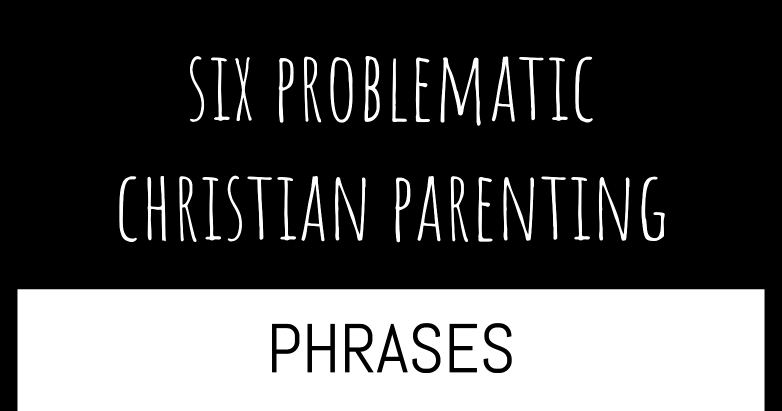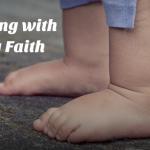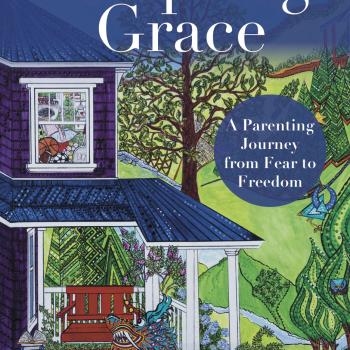If you grew up Christian, or even outside of Christian subculture, you may have heard these terms wielded against you as parenting wisdom. Some parents hold them as golden nuggets of truth lifted from the Bible when what that really means is that it is intuitive to the parenting sensibilities of their time. This is why sometimes Biblical Parenting is Horrible Parenting. The Bible can be a source of parenting wisdom, but it is not meant to be a parenting manual. This is why we need a better hermeneutic to ensure our parenting does not harm our children.
Because parenting is instinctual and often mirror the way we were parented, it’s important to debunk some of these so-called Christian parenting phrases because they don’t reflect the ways of Jesus.

“Obey Your Parents in the Lord, for This is Right.”
Source: This is a direct quote from Ephesians 6:1 and rooted in one of the ten commandments to honor your father and mother.
Problematic: Respect for your elders and honoring parents isn’t harmful in itself. After all, we should all respect one another because of our common humanity. But this cannot be applied unilaterally—some people exhibit awful behavior and should not be held up as role models simply because of their older age. How, then, do we determine who we should respect and follow? We cultivate discernment skills, which means we must make room for our children to practice pushing and pulling, even against us as their authority figures.
Do this instead: Disobey your parents in the Lord, for this, too, is biblical.
“Delayed obedience is disobedience.”
Source: Rick Warren quotes Psalm 119:60, “Without delay I hurry to obey your commands,” as the biblical justification for this life advice. Popular Christian parenting author, Gary Ezzo, applies this teaching to parenting with methods on training children in “first-time obedience,” in his Babywise series.
Problematic: A mature Christian does not blindly obey. Our faithfulness requires responsibility in pausing, discerning, seeking a variety of opinions, in our ethics. This is poor advice for people in general, and devastating for young children. First time obedience disregards a child’s development by demanding behavior beyond their capabilities, and advocates of first time obedience achieve results by using punitive methods. This severs the child-caregiver connection and results in lasting harm.
Do this instead: Be patient and kind and merciful to our children. Listen and wait for their cues telling us they are ready for certain behaviors. Help them become independent decision makers, capable of hearing from God themselves and showing us their wisdom.
“Spare the rod, spoil the child.”
Source: Not really from the Bible, it’s from an English Puritan poem, but Proverbs comes close in the verse 13:24, “He that spares the rod hates the children…”
Problematic: Corporal punishemnt, or spanking, is controversial, but more and more scientific and sociological evidence is surfacing revealing spanking to be associated with poor outcomes for children. Research suggests spanking spikes children’s cortisol levels, just like other forms of trauma. Spiritual justification for spanking limits the myriad of creative solutions in discipline and correction that honor the physical agency of our children.
Do this instead: Explore alternatives. I suggest gentle parenting advocated by people like L.R. Knost, author of Jesus, the Gentle Parent. Here is an extensive list of other resources.
“Modest is hottest.”
Source: Not sure, but it’s not from the Bible. However, it reflects similar sentiments such as 1 Tim. 2:9, “I want women to dress modestly,” and was popularized by celebrity Christian artists such as Joshua Harris and Rebecca St. James.
Problematic: Sexist as it only applies to our daughters. Modesty rules are usually double standards policing girls dress codes and inducing shame for their sexual choices. The woman’s body is to be hidden because it is the object of lust. This leads to an unhealthy body image of young, developing girls and hinders them from dressing appropriately to engage their own creative fashion sensibilities as well as practical concerns to doing the activities they love.
Do this instead: Teach both our sons and our daughters the cultural expectations surrounding clothing choices in different contexts but give them freedom to develop their own likes and dislikes regarding fashion. As much as possible, say yes to letting them wear what they want. More importantly, let their dress be merely an outward expression of who they are on the inside, and spend time cherishing their humanity above all else. See also: Should My Daughter Defy Modesty Rules at the Youth Group Beach Retreat?
“Love the Sinner, Hate the Sin.”
Source: Commonly attributed to St. Augustine in the context of rebuking “naughty nuns” for making “wanton looks” at men. Biblical support for the phrase points to passages in which God wrath is directed at the sin and the sinner.
Problematic: Authoritarian parents apply this to “hating the sin” of a child because it is really a form of love. This spiritual justification is dangerous because it allows those in authority over children to mete out punishment without understanding a child’s development, needs, other external and internal factors that lead to a child’s misbehavior. Hate should not be a part of any parenting vocabulary. Furthermore, this quip is often unfairly and disproportionately directed towards LGBTQ people. I don’t know what else to say to parents of LGBTQ children but that they are not sinners—they are wonderful image bearers and worthy of unconditional love from their parents.
Do this instead: Love the sinner, Hate the sin. (https://teespring.com/shop/LoveTheShirt#pid=369&cid=6529&sid=front)
“Sinners from the womb.”
Source: This is the doctrine of Original Sin, the theological concept that we emerge from the womb tainted with the sinful nature.
Problematic: When you believe your child is inclined to sin (misbehave), it can become a self-fulfilling prophecy. Our children become what we believe they are, and the doctrine of original sin induces an unhealthy cycle of shame and guilt. Sin and evil is a reality and a part of our world and our will, but above all else, our children need us to believe in their inherent goodness and call them to it.
Do this instead: Re-frame your parenting using the theological paradigm of Original Blessing, that God made us in God’s image and loves us without condition. Preach the Gospel According to Moana, look our kids in their beautiful eyes and tell them we know how GOOD they are and empower them to live into their potential.
Get a free download of a Christian parenting manifesto that helps us guide children into healthy spirituality + a guide on How to Raise a Feminist Son + the most helpful parenting resources with progressive values.












